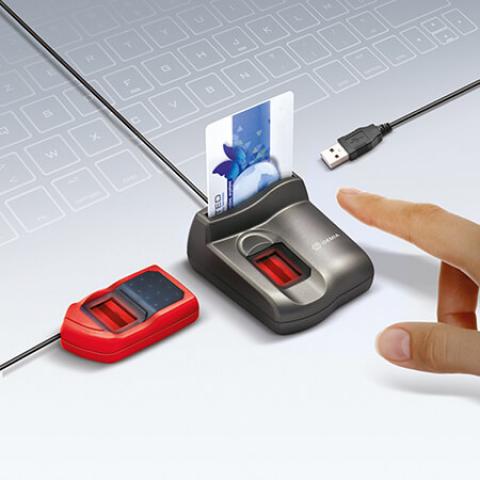Capturing high definition fingerprint images with MSO 330 and 331


Personal identification is essential for a wide range of desktop applications from access to workstations to cashless payment, etc. The MSO 1300 Series is a range of easy-to-use fingerprint readers, allowing biometric login from desktop. It draws on IDEMIA’s patented optical technology and fingerprint algorithms – recognized worldwide for their high levels of performance and exceptional robustness – to enhance client security with the power of biometrics.
These fingerprint authentication readers take the form of compact USB sensors offering reliable, ergonomic and cost-effective solutions for enrollment, identity verification and biometric login. Their match-on-device (up to 1:10,000 users) or match-on-card functions (for variants equipped with a smartcard reader named MSO 1350), enhanced with extensive security features, guarantee the faultless protection of information.
The most advanced models in the series deliver a fingerprint image that is certified by the FBI (PIV IQS*) and the STQC**, and detect a large panel of counterfeit fingerprints. Micro-USB connection is also available for smartphone applications.
The MSO SDK enables a swift integration into Windows, Linux and Android platforms.
*Image Quality Specifications
**Standardisation Testing and Quality Certification Directorate: an office of the Government of India providing quality assurance services in the area of Electronics and IT.
The MSO 1300 Series has been designed with compactness and cost-effectiveness in mind, with no compromise on fingerprint acquisition quality. The 0.5” x 0.8” active area ensures optimized capture and repeatable finger placement.
Theses fingerprint readers run powerful algorithms on their embedded processor. They are not only capable of delivering fingerprint images but also of coding/matching templates, and they secure them to protect users’ data.
The E3 variants produce a fingerprint image that is certified by the FBI (PIV IQS) and the STQC, and detect a large panel of counterfeit fingerprints—including but not limited to those made with latex, Plasticine, Kapton, transparent film, rubber, Play-Doh, graphite or paper.